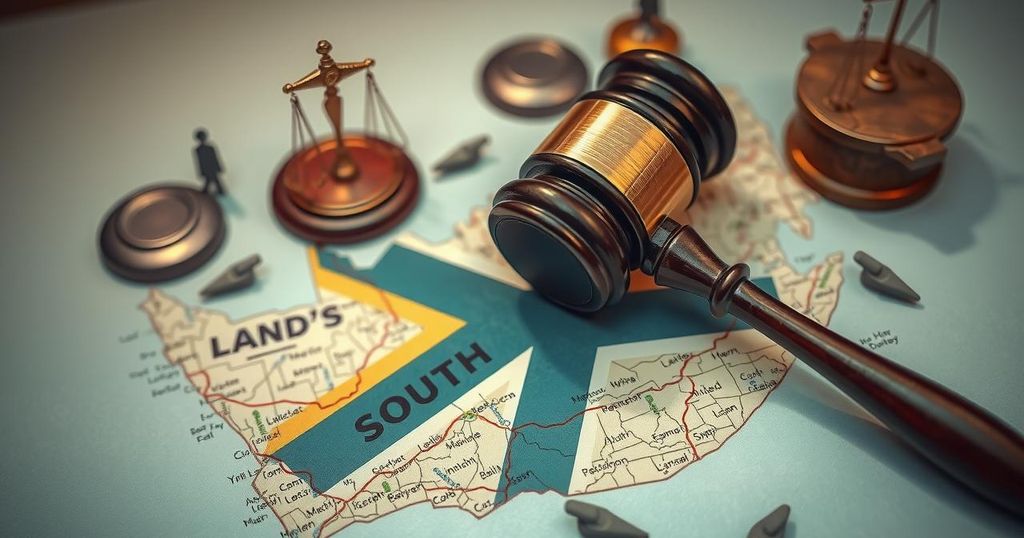The Democratic Alliance has lodged a legal challenge against South Africa’s Expropriation Act, which permits land seizures without compensation. This controversy heightened due to remarks from former President Trump, who suspended foreign aid, alleging rights violations. The ANC contends that misinformation drives these allegations, while the DA emphasizes the necessity of protecting property rights in light of apartheid’s legacy.
A legal challenge has been initiated by the Democratic Alliance (DA) against South Africa’s new Expropriation Act, which enables the government to seize private land without compensation under specific conditions. This law has sparked controversy, particularly following comments from former US President Donald Trump, who has suspended foreign aid to South Africa, alleging land confiscation without due process.
The ruling African National Congress (ANC), which leads a coalition government, contends that Trump’s accusations are based on misinformation and a misrepresentation of the country. Following the 2019 elections, the ANC lost its parliamentary majority for the first time in three decades and formed a power-sharing government with nine other parties.
The DA, representing the coalition’s second largest party, claims that the Expropriation Act is unconstitutional and undermines property rights necessary for democracy. They argue that President Cyril Ramaphosa signed the law contrary to their advisement, highlighting the importance of protecting property rights in the wake of historical injustices of apartheid.
Land ownership remains a sensitive issue in South Africa, with claims for reform rooted in addressing the ingrained inequalities stemming from apartheid. The DA criticizes that similar government powers during apartheid led to the dispossession of indigenous communities, asserting that true rectification necessitates safeguarding property rights against unchecked governmental authority.
The ANC has stated that no land has been expropriated without compensation thus far. Such action would only take place under exceptional circumstances where public necessity is demonstrated, ensuring all alternative avenues for acquisition have been considered.
In response to Trump’s executive ban on aid, which cited violations of rights in South Africa, the administration announced plans to assist Afrikaner farmers facing displacement. This would allow for humanitarian relief measures, including entry into the Refugee Admissions Program for these individuals.
President Ramaphosa has indicated his intention to dispatch envoys to various nations to clarify the government’s policy alterations, including those pertaining to the Expropriation Act. This effort aims to mitigate international concerns and provide insight into South Africa’s ongoing land reform initiatives.
This dispute centers around South Africa’s Expropriation Act, aiming for land reform without compensation, leading to tensions with the United States. The DA challenges the legality of the law, citing the necessity to safeguard property rights amidst historical injustices. As the ANC defends its position, the implications for land ownership and international aid remain pivotal in shaping the country’s future.
Original Source: www.bbc.com




